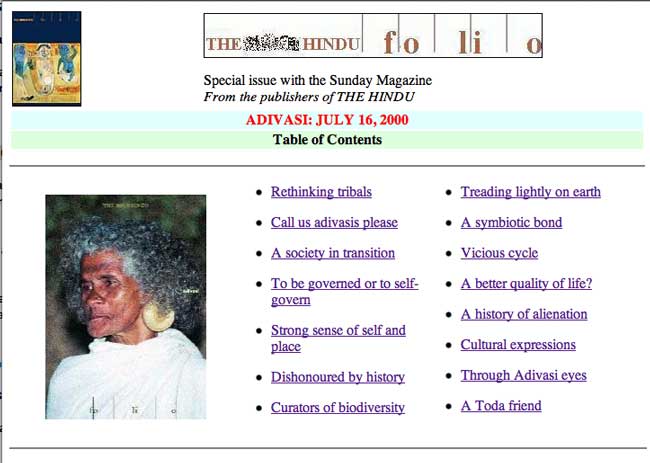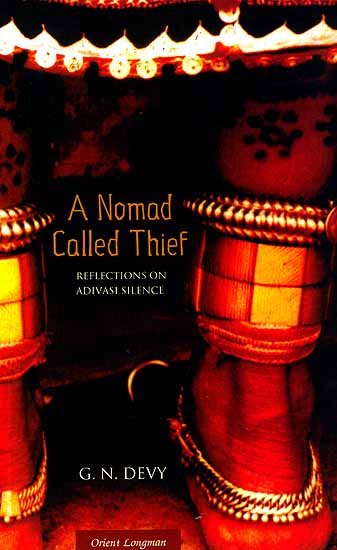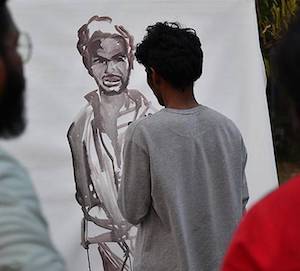Ever since the Portuguese travel writers and missionaries decided to describe the vast variety of ethnic and occupational groups and sects of the Indian subcontinent in terms of “caste” and “tribe”, the terms have stuck to society as long-worn masks that start becoming one’s real personality. The result is that today no Indian describes society without taking recourse to the categories “caste” and “tribe”. In the initial period of India’s contact with western nations the two terms were used as synonyms, the difference lay only in the social status of the groups they described. The synonymy was finally shattered through a legal intervention by the colonial rulers when an official list of communities was prepared by them (in 1872) as the list of tribes. A similar list was prepared in the previous year for communities that were mistakenly thought of as ‘criminal’ and were covered by the provisions of an inhuman “Criminal Tribes Act of India, 1871.” Since then the “tribes” are perceived as a distinct segment of Society.
Ganesh Devy in “Rethinking tribals”
ADIVASI Special issue (The Hindu, Folio, July 16, 2000) >>
“Tribal men and women mix freely, but with respect for each other; they drink, sing and dance together without disgracing themselves. They love flowers; the forests are a part of their lives, they live in harmony with nature. […] But caste Hindu society in India is so convinced of its own superiority that it never stops to consider the nature of social organisation among tribal people. In fact it is one of the signs of the ‘educated’ barbarian of today that he cannot appreciate the qualities of people in any way different from himself – in looks or clothes, customs or rituals. […] Few bureaucrats have the cultural calibre or the intellectual curiosity to try to understand the nature of the societies over which they rule.” – Guest Column in India Today >>
“Tribal communities are a standing example of how women play a major role in preservation of eco historic cultural heritage in India.” – Mari Marcel Thekaekara (writer and Co-Founder of ACCORD-Nilgiris) | Learn more >>

Articles and authors
Rethinking tribals by GN Devy
Call us adivasis, please by Gail Omvedt
A society in transition by Suresh Sharma
To be governed or to self-govern by Smitu Kothari
Strong sense of self and place by Amita Baviskar
Dishonoured by history by Meena Radhakrishna
Curators of biodiversity by KK Chakravarthy
Treading lightly on earth by Ashish Kothari
A symbiotic bond by Mari Thekaekara and Stan Thekaekara
Vicious cycle by Dilip D’Souza
A better quality of life? by Roopa Devadasan and N Devadasan
A history of alienation by Pankaj Sekhsaria
Cultural expressions by Jaya Jaitly
Through Adivasi eyes by Mari Thekaekara and Stan Thekaekara
A Toda friend by S Anandalakshmy
Source: Folio (Special issue with the Sunday Magazine): ADIVASI: JULY 16, 2000 from the publishers of THE HINDU
Date Visited: 15 March 2018 (discontinued since)
Research the above issues with the help of Shodhganga: A reservoir of theses from universities all over India, made available under Open Access >>
Reports in the Indian press | List of periodicals included in this search >>
Search tips
Combine the name of any particular state, language or region with that of any tribal (Adivasi) community.
Add keywords of special interest (music, poetry, dance just as health, sacred grove and biodiversity); learn about the rights of Scheduled Tribes such as the “Forest Rights Act” (FRA); and the United Nations “Declaration on the Rights of Indigenous Peoples”, “Universal Declaration of Human Rights”, “women’s rights”, or “children’s right to education”.
Ask a question that includes “tribal” or “Adivasi”, for instance: “Adivasi way of life better?” (or “tribal way of life worse?”)
Specify any particular issue or news item (biodiversity, bonded labour and human trafficking, climate change, ecology, economic development, ethnobotany, ethnomedicine, global warming, hunter-gatherers in a particular region or state, prevention of rural poverty, water access).
For official figures include “scheduled tribe ST” along with a union state or region: e.g. “Chhattisgarh ST community”, “Himalayan tribe”, “Scheduled tribe Tamil Nadu census”, “ST Kerala census”, “Particularly Vulnerable Tribal Group Jharkhand”, “PVTG Rajasthan”, “Adivasi ST Kerala”, “Adibasi ST West Bengal” etc.
In case the Google Custom Search window is not displayed here try the following: (1) toggle between “Reader” and regular viewing; (2) in your browser’s Security settings select “Enable JavaScript” | More tips >>
Note: hyperlinks and quotes are meant for fact-checking and information purposes only | Disclaimer >>
Find publications by reputed authors (add “open access” for freely downloadable content)

Reflections on Adivasi Silence and Voice by Ganesh [G.N.] Devy | Publications >>

“Doctors in the region [Palakkad district] argue that while the proportion of people with mental illnesses is not unusually high, the problem is a crisis because of their socioeconomic vulnerability.” […] “The non-inclusivity of Adivasis is nothing but racial discrimination. Adivasis were always ruled.” | In-depth analysis (Scroll.in 5 April 2023) >>
“Casteism is the investment in keeping the hierarchy as it is in order to maintain your own ranking, advantage, privilege, or to elevate yourself above others or keep others beneath you. […] For this reason, many people—including those we might see as good and kind people—could be casteist, meaning invested in keeping the hierarchy as it is or content to do nothing to change it, but not racist in the classical sense, not active and openly hateful of this or that group.” | Learn more about the effects of “casteism” on tribal communities >>
Source
Book review for “Caste: The Origins of Our Discontents” by Isabel Wilkerson, Dilip Mandal, The Print, 23 August 2020
URL: https://theprint.in/opinion/oprah-winfrey-wilkerson-caste-100-us-ceos-indians-wont-talk-about-it/487143/
Date visited: 10 November 2020
[Bold typeface added above for emphasis]
See also
Adverse inclusion | Casteism | Rural poverty
Childhood | Tribal Children’s Right to Education in India
Demographic Status of Scheduled Tribe Population of India (Census figures 2011)
Fact checking | Figures, census and other statistics
Human Rights Commission (posts) | www.nhrc.nic.in (Government of India)
Search tips | Names of tribal communities, regions and states of India
“What is the Forest Rights Act about?” – Campaign for Survival and Dignity
“Who are Scheduled Tribes?” – Government of India (National Commission for Scheduled Tribes, NCST)